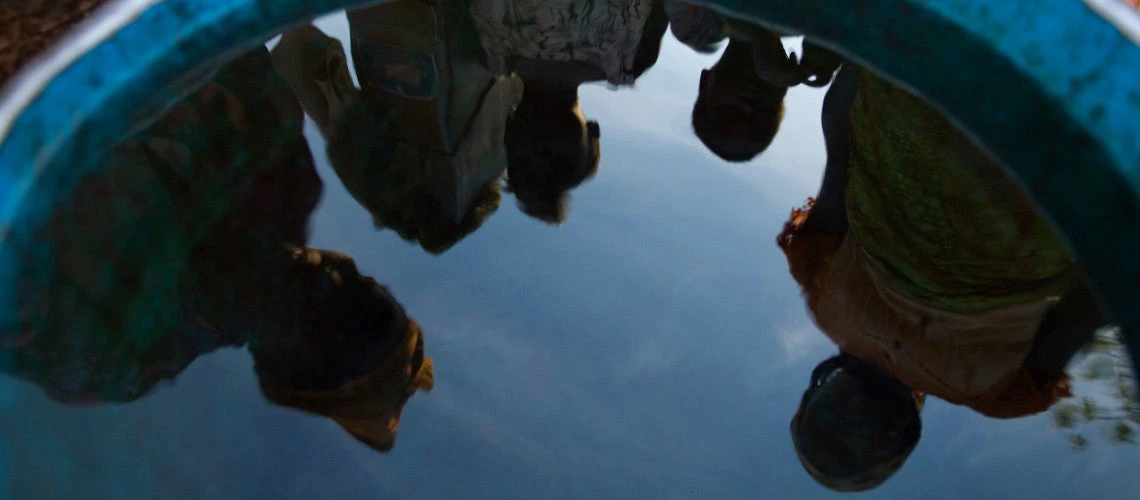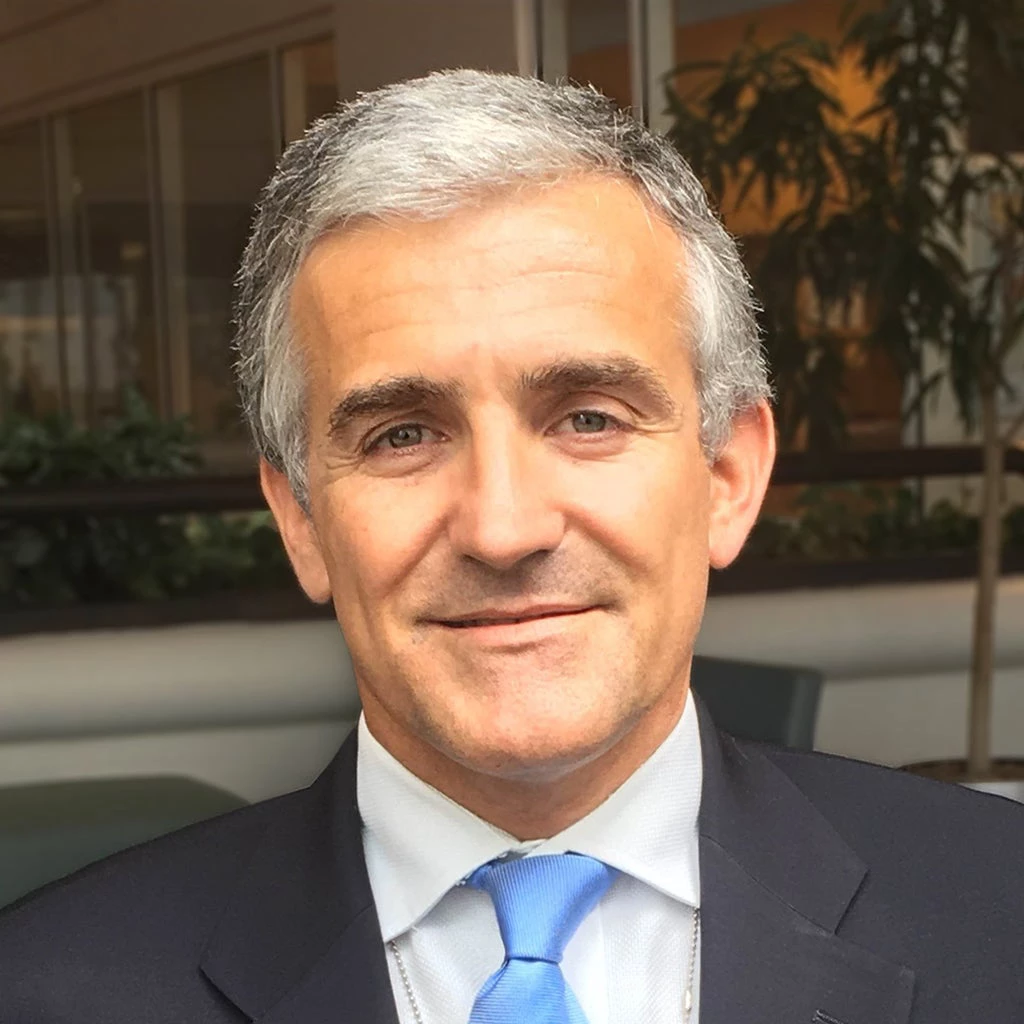 Reflet dans un réservoir d'eau (Ghana). Photo : © Arne Hoel / Banque mondiale
Reflet dans un réservoir d'eau (Ghana). Photo : © Arne Hoel / Banque mondiale
Some 2.2 billion people around the world do not have access to clean drinking water, 4.2 billion do not have sanitation service, while 3 billion lack basic handwashing facilities. The consequences of this lack of access to basic services are disproportionately felt by the poorest and most vulnerable people living in fragile, and conflict-affected situations (FCS) since many of the most fragile countries are also those with the poorest services.
The challenges in fragile settings are many. Lack of physical security might make it particularly challenging to deliver water services to the affected population. Lack of safe access to clean water makes people more vulnerable to infectious diseases such as cholera, and now also makes the control and management of COVID-19 more difficult. In countries experiencing protracted conflicts, children under 5 years of age are more than 20 times more likely to die from diarrheal disease linked to unsafe water and sanitation than from violence in conflict .
Globally, there are about 79.5 million forcibly displaced people including refugees, internally displaced persons and asylum seekers who have fled their homes to escape violence, conflict and persecution. Displaced people living in camps or host communities often struggle to access basic water supply and sanitation services, and place sudden significant stress on both service delivery systems and water resources in host communities.
In Jordan, forced displacement is testing the ability of government to sustain water supply and sanitation services. The numbers of refugees joining host communities in Jordan has significantly strained the country’s systems and added pressure on basic service delivery of water. The Second Programmatic Energy and Water Sector Reforms Development Policy Loan, supported by the Global Concessional Finance Facility, helped provide countercyclical financing to sustain water and energy service delivery in Jordan, thus enabling the country to weather the dual economic and social impacts of the Syrian refugee crisis.
Water insecurity and scarcity can be both a driver and consequence of fragility
Lack of access to water supply and sanitation is just one aspect of water insecurity. Other aspects of water insecurity are when there is too much, too little or water is too polluted to be used. Together, all these aspects of water insecurity can cause severe disruptions and compound fragilities in social, economic, and environmental systems. Where water insecurity repeatedly affects populations, it can act as a risk multiplier, intensifying existing grievances, creating new risks, and deepening inequities. This destabilizes already fragile settings , further aggravating the challenges of water management and perpetuating a vicious cycle of water insecurity and fragility.
Often, it is not the scarcity of water itself that leads to tension, but the way in which it is administered-- inefficient use and management of water, unequal distribution, outdated infrastructure, and inappropriate legal, political, and economic frameworks all exacerbate tensions. Greater water security – providing water services, protecting people from water-related disasters and preserving surface, ground and transboundary water – can help countries become more resilient and keep them from sliding further into fragility.
The World Bank’s financing of water projects in FCS grew to US$3.5 billion in 2020 with an additional US$4 billion being channeled through multisector projects where water complements investments in agriculture, energy, environmental management, education, urban development and health as part of the COVID-19 response.
In Somalia, localized conflicts between farmers and herders, and between different pastoralist groups, frequently revolve around issues of contested land use, grazing rights, and insecure access to water and pasture. Existing tensions and conflict risks are amplified during extended dry periods when pastoralist livelihoods become particularly precarious. This results in economic insecurity and scarcity and increases the risk of wider violence and social breakdown.
The Water for Agro-pastoral Productivity and Resilience project is addressing conflict-risk through small decentralized water investments and is providing resources for more sustainable use of natural resources—helping to improve the availability of water for longer periods. This will help to reduce water-related displacement and offset the drivers of resources-based conflicts.
Water scarcity can trigger conflict especially in areas where water resources are shared, or transboundary. In the Middle East and North Africa about 60% of surface water resources are transboundary and highlights the importance of managing shared water resources cooperatively. In fragile contexts and those with a history of tensions over transboundary waters, investment in cooperative transboundary water management can help to deescalate tensions, promote stability, and provide resilience to water-related shocks.
The formation in 1999 of the Nile Basin Initiative (NBI) – an intergovernmental technical partnership of ten Nile basin countries– is a good example of cooperative water resources management. Under this initiative, basin countries have been able to advance cooperative management and development, including advancing a pipeline of over $6 billion of investments, including $1.5 billion under implementation.
Preventing and mitigating conflict and fragility, with a special focus on the most vulnerable, is a key focus of the first World Bank Group strategy for Fragility, Conflict, and Violence (FCV) released earlier this year, which defines the institution’s development approach to fragile situations.
Recognizing that up to two-thirds of the world’s extreme poor could live in such settings by 2030, the strategy is backed by $26 billion in financing over the next three years from the International Development Association (IDA), the World Bank’s fund for low income countries, as well as support to middle income countries impacted by FCV. Providing water services, protecting people from water-related disasters and preserving surface, ground and transboundary water will remain critical priorities as the World Bank scales up its investments in some of the most challenging contexts.
Editor’s note: this blog has been edited after publication to update the figure of IDA19 financing allocation for fragility, conflict, and violence-affected situations ($26 billion)



Join the Conversation